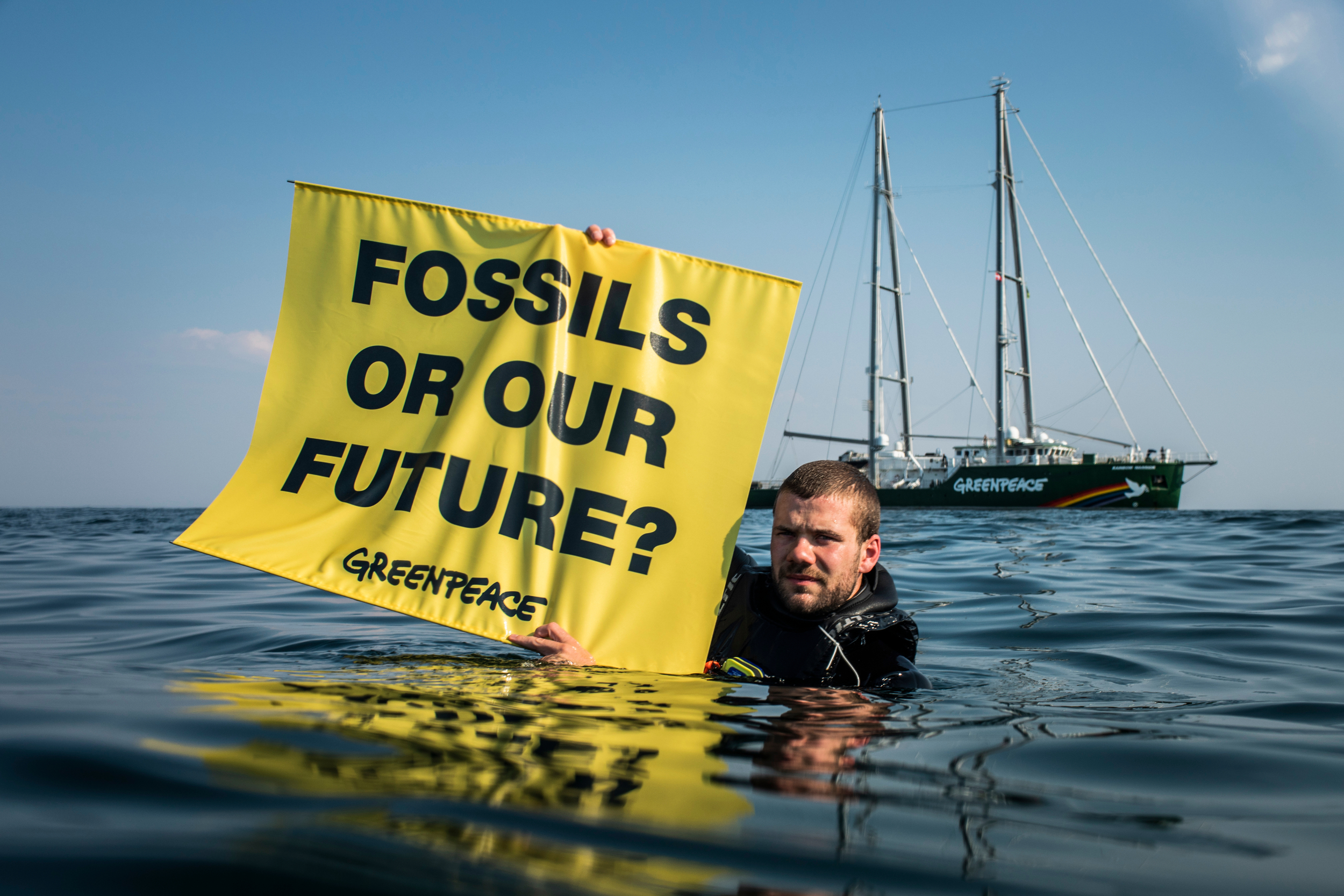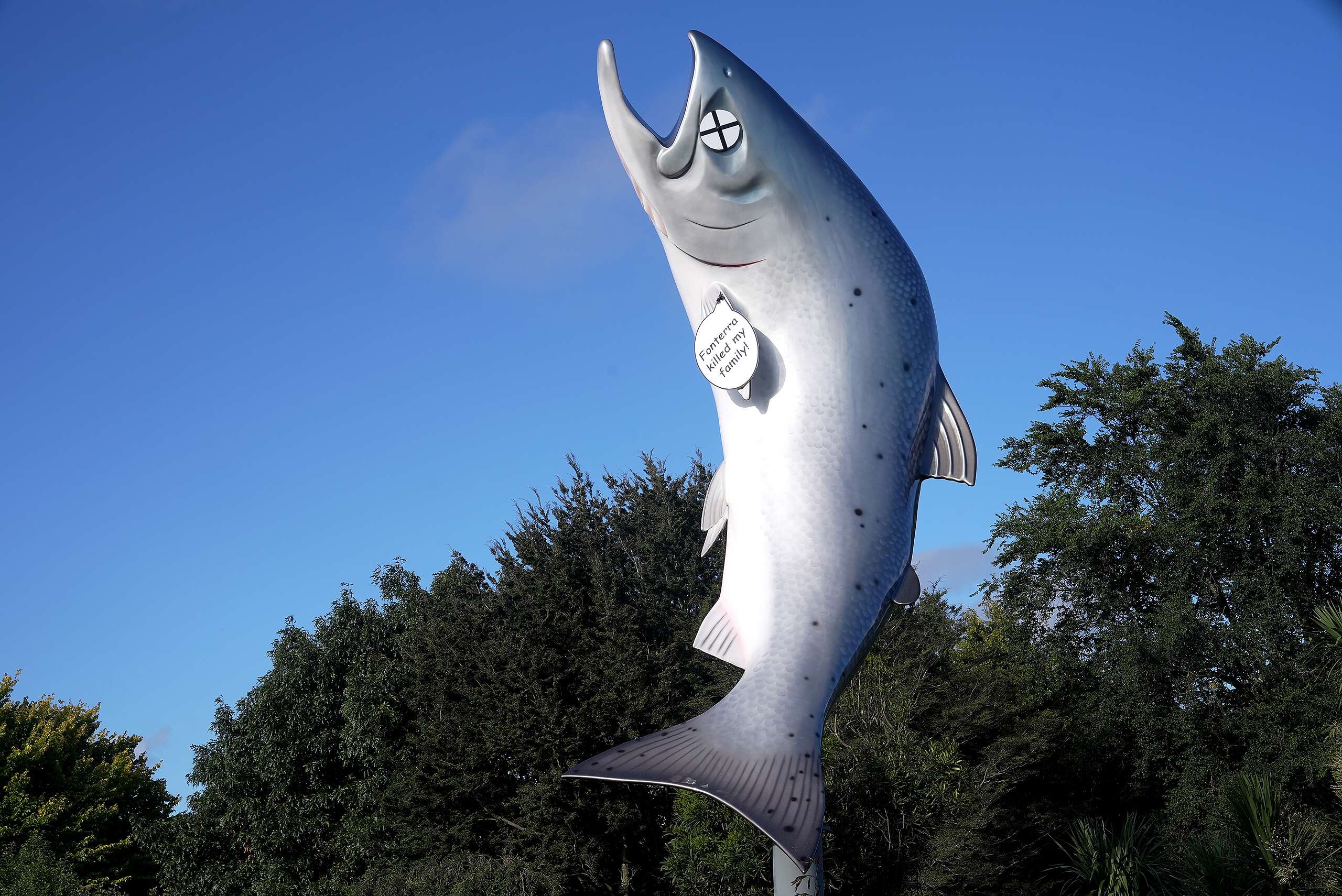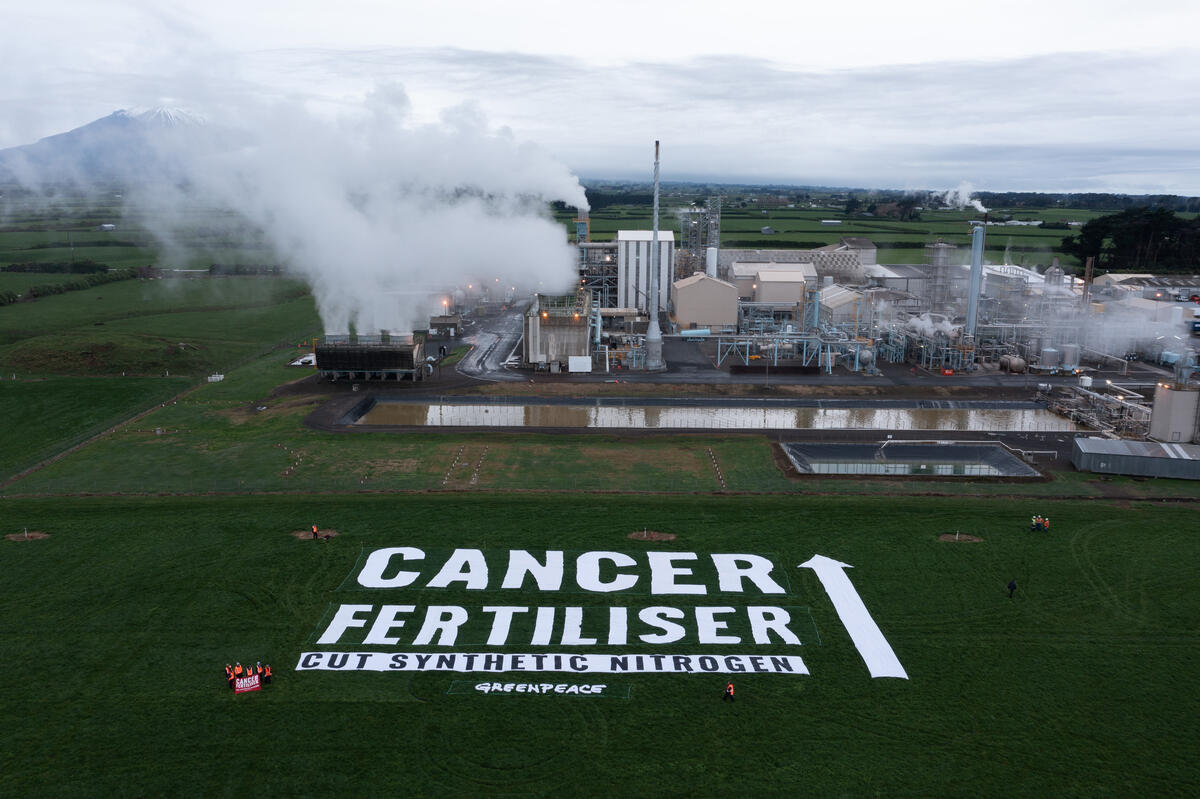In a paper published today, a group of academics from the University of Galway, University of Melbourne, University College Cork, and Climate Resources has warned that proposed Irish and New Zealand methods of setting climate targets to align with the concept of ‘no additional warming’ would risk ‘locking in global hunger’ if adopted globally.
Greenpeace Aotearoa spokesperson Amanda Larsson says, “While Luxon is being criticised at home for failing to address the cost of living, academics overseas are highlighting that his Government’s approach to climate targets could worsen hunger at a global scale.”
“By advancing the dangerous concept of ‘no additional warming’ at the demand of the livestock lobby, the scientists say that Luxon and others will accelerate the climate crisis and worsen access to nutrition in poorer, food-insecure countries.”
Lead scientist Dr Colm Duffy, Honorary Lecturer in Agri-Sustainability, School of Biological and Chemical Sciences and Ryan Institute, University of Galway, says, “The science shows that the new policy essentially grandfathers methane emissions – meaning a country’s future share of warming is based not on equity or ambition, but on historical share of emissions. In essence; ‘I had more, so I get more’.”
No additional warming is a controversial concept that bakes in current high levels of methane emissions as ‘normal’, and has been labelled an ‘accounting trick’. It was recently criticised by a group of climate scientists who wrote an open letter to the New Zealand Prime Minister in June, urging him not to change New Zealand’s climate targets based on this approach.
Greenpeace’s Larsson says “With ‘no additional warming’, New Zealand and Ireland are rewriting the rules to their own advantage – hogging the atmosphere and refusing to give space to smaller economies to increase agricultural production to be able to sustainably feed themselves.
“In practice, this approach would mean that wealthy exporters with high levels of emissions from livestock would be rewarded for maintaining the status quo, while poorer, food-insecure countries would be punished for increasing their food production.
“In Aotearoa, we are resting on a knife edge of corporate greed. Intensive dairy is polluting the climate, lakes, rivers, and drinking water, in order to produce excessive quantities of milk powder which are used in confectionery products,” says Larsson.
“Now agribusiness lobbyists are attempting to get Luxon and his Government to change the way emissions are measured so that the industry isn’t held accountable for the devastation it’s causing to our climate. This is what happens when Governments let polluters write the rules, instead of acting in the public interest.”



